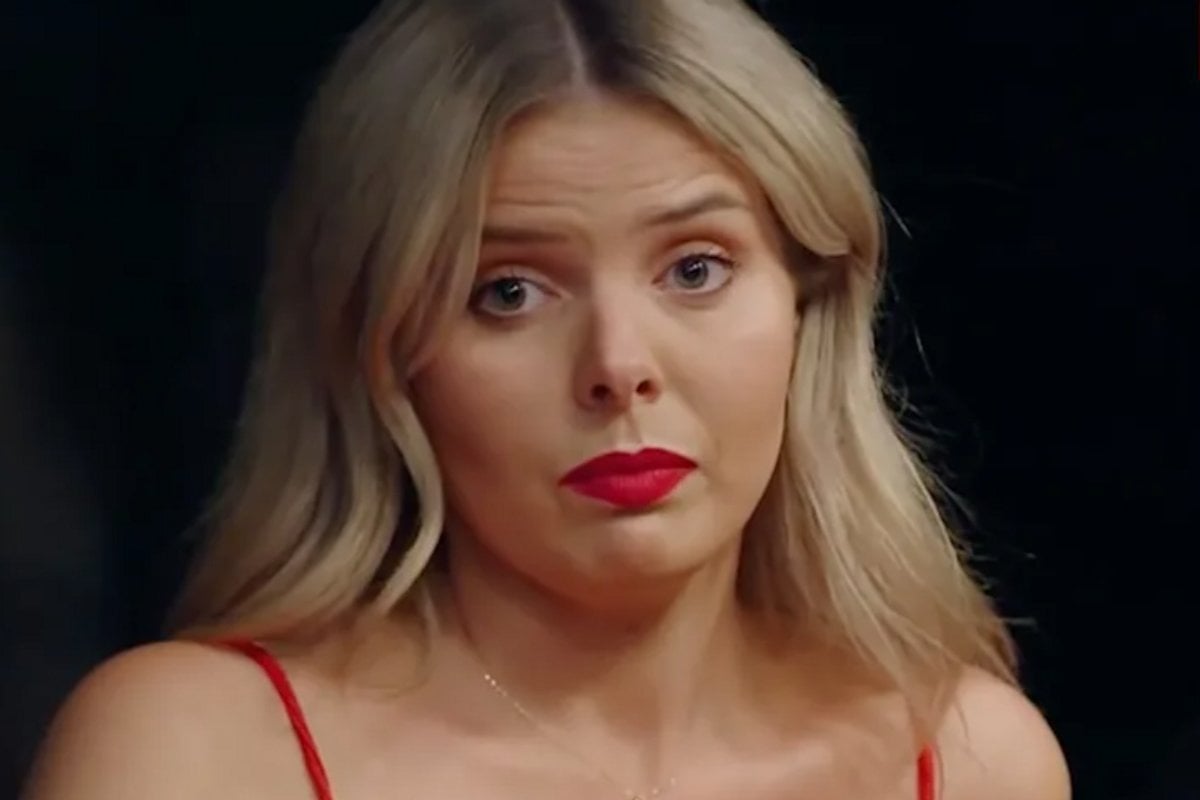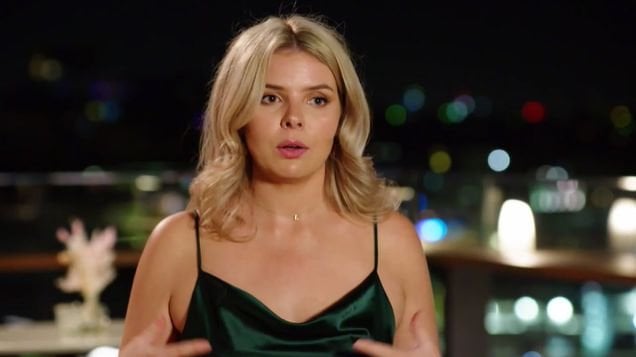
One week ago, I wrote an article calling for some civility - a contentious request in the Age Of The Internet.
Suggesting that people, maybe, I don't know, stop sending death threats to someone they've never met, and refrain from comparing a reality television star to an infamous serial killer, is seen as a form of silencing. Or taking a side. Or forgiving a person for every transgression they've ever made - an outrageous thing to do.
The person in question was Olivia Frazer, the villain on this season of Married At First Sight.
 Olivia during the Girl Hen's Night. Image: Channel 9.
Olivia during the Girl Hen's Night. Image: Channel 9.
I had watched as reasonable discourse and discussion around her poor choices had deteriorated into a pile on too large for any human being to bear. While insults were thrown, and petitions were signed, and private images of her as a young person were shared, and death threats were sent not only to her but her friends and family, it seemed ironic that this was a woman we were accusing of bullying.
Top Comments